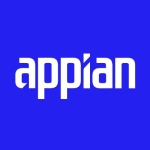What is our primary use case?
We use
Informatica Cloud Data Quality in a medium business environment.
What is most valuable?
The quality of the data improves with
Informatica Cloud Data Quality. There is an address cleansing feature called AddressDoctor that cleanses and enhances the quality of the data. Additionally, several algorithms are available for use, such as correcting typo mistakes in the data, whether in alphanumeric, upper case, or lower case forms.
What needs improvement?
Informatica Cloud Data Quality has significant room for improvement. It is not stable, and there are several issues, especially on the cloud side, unlike the on-premise version which was very stable. There are problems with upgrades and patches that do not make sense and can negatively impact the existing code.
What do I think about the stability of the solution?
There are substantial stability issues with Informatica Cloud Data Quality on the cloud. The on-premise version was very stable, but on the cloud, the product experiences many issues with patches and upgrades disrupting functionality.
What do I think about the scalability of the solution?
On a scale, scalability with this product would be rated as five or six out of ten.
How are customer service and support?
I deal with technical support daily. The support is not very good; each ticket starts from scratch as there is no continuity between personnel handling the same ticket.
How would you rate customer service and support?
Which solution did I use previously and why did I switch?
From my experience, I have always used Informatica. I transitioned from the on-premise to the cloud version of the product.
What was our ROI?
Connecting to the cloud allows access to many connectors, which is a positive. However, the stability and performance remain issues. In terms of scalability and cloud connectivity, it is number one.
What's my experience with pricing, setup cost, and licensing?
I am not involved in the pricing details. It appears to use a model based on usage, such as how many rows are processed.
What other advice do I have?
I would rate the solution overall as five to six on the cloud. I would prefer my review to remain anonymous due to my H-1B status. The overall solution is rated as five to six out of 10.
Which deployment model are you using for this solution?
Public Cloud
If public cloud, private cloud, or hybrid cloud, which cloud provider do you use?
Other
Disclosure: My company does not have a business relationship with this vendor other than being a customer.
















